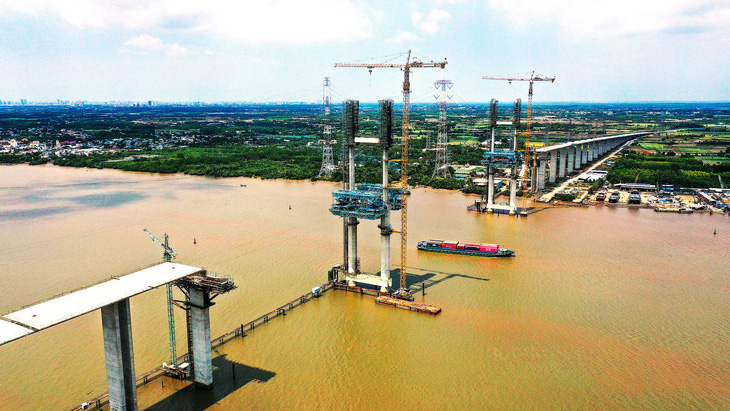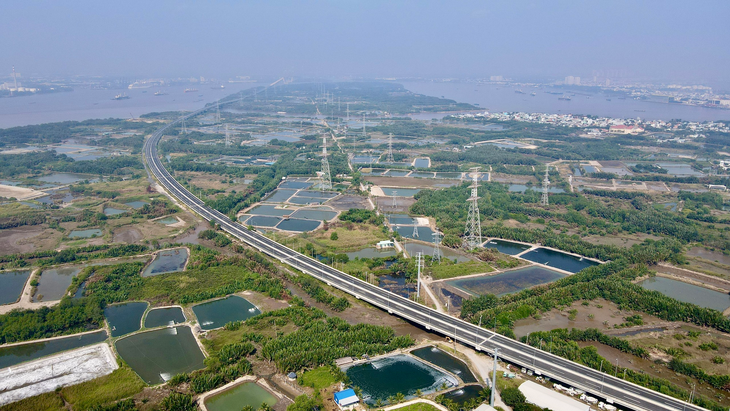Some contractors of the Ben Luc-Long Thanh Expressway in southern Vietnam have filed a lawsuit against the state-owned Vietnam Expressway Corporation (VEC), the investor of the project, to the Singapore International Arbitration Center demanding compensation as the project has been put on hold for many years.
The 57.8-kilometer Ben Luc-Long Thanh Expressway project passes through Ho Chi Minh City and its neighboring provinces of Long An and Dong Nai and is considered a key national project.
The project, which carries a price tag of some VND31.32 trillion (US$1.3 billion), was approved in early 2010.
It uses official development assistance (ODA) loans borrowed from the Asian Development Bank (ADB) and the Japan International Cooperation Agency (JICA) as well as local reciprocal capital.
The project was planned to be executed between 2015 and 2025.
VEC divided the project into three sections with 11 packages. There are three different loan contracts, including two with ADB and one with JICA.

However, the construction of the three sections has come to a deadlock since mid-2019, resulting in the lawsuit of contractors.
A section in the west, including five packages, was expected to be completed in 2018, but the investor’s tight budget and slow site clearance have put the section on hold.
ADB terminated the loan contracts for the project in June 2019, so VEC had no money to make payments for contractors.
As a result, contractors of the A1 package sued VEC for compensation for their management, and worker and equipment costs during the suspension period.
Contractors of the J1, J2, and J3 packages of the middle section of the expressway, which has been halted for three years and nine months, also filed lawsuits against VEC.
Similarly, contractors of the A5, A6, and A7 packages of the eastern section have required VEC to pay for their costs during the suspension period and accused the investor of violating their contracts.
In a statement sent to the Ministry of Construction, the Ministry of Transport affirmed that VEC must balance its fund to pay the increased costs.
The Ministry of Finance also proposed including these costs in the project development plan.
However, lawsuit costs have yet to be specified in the plan, the ministry said.
The Ministry of Transport has also suggested VEC allocate an additional VND7.5 trillion ($321.7 million) from its budget for the A2-2, A4, A6, and A7 packages and increased costs.
Meanwhile, VEC proposed canceling a contract to borrow $100 million from ADB.
Like us on Facebook or follow us on Twitter to get the latest news about Vietnam!



















































